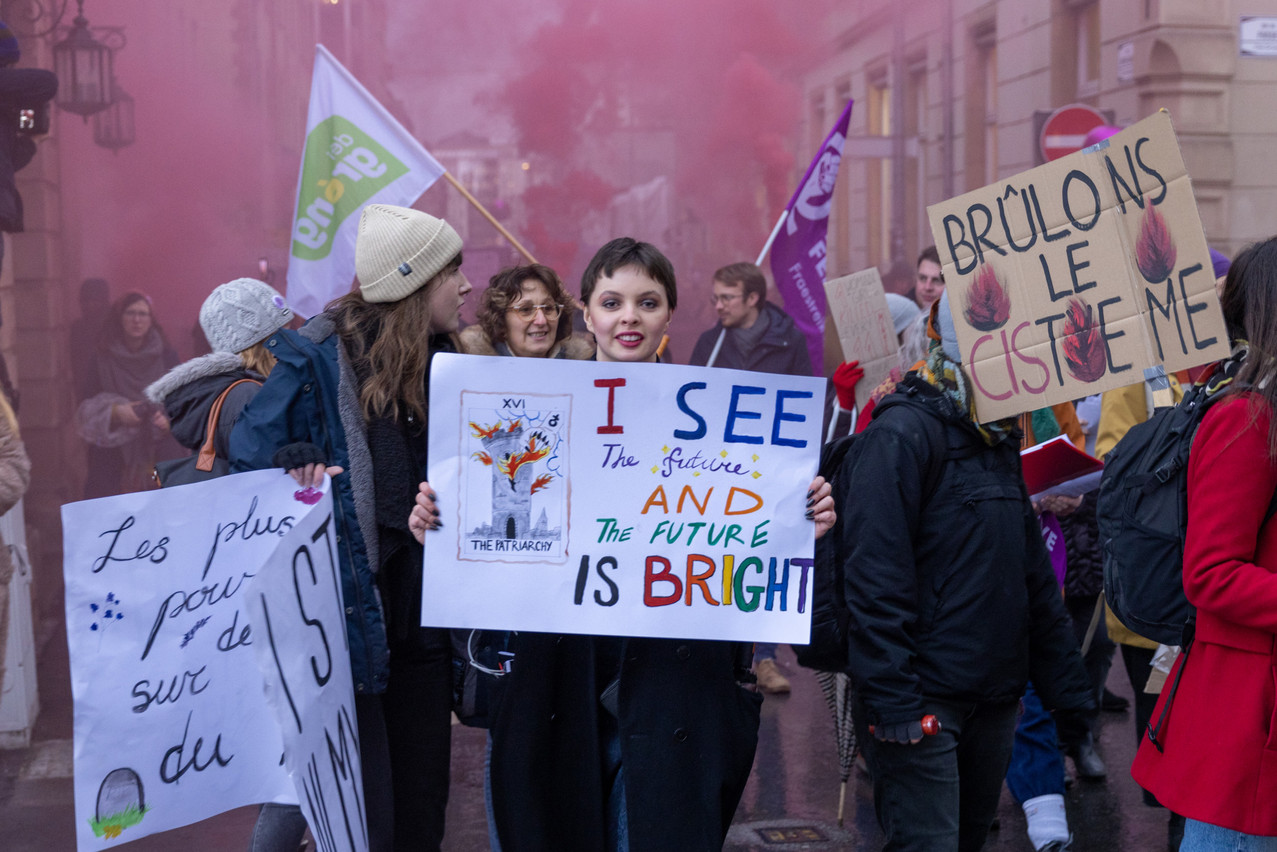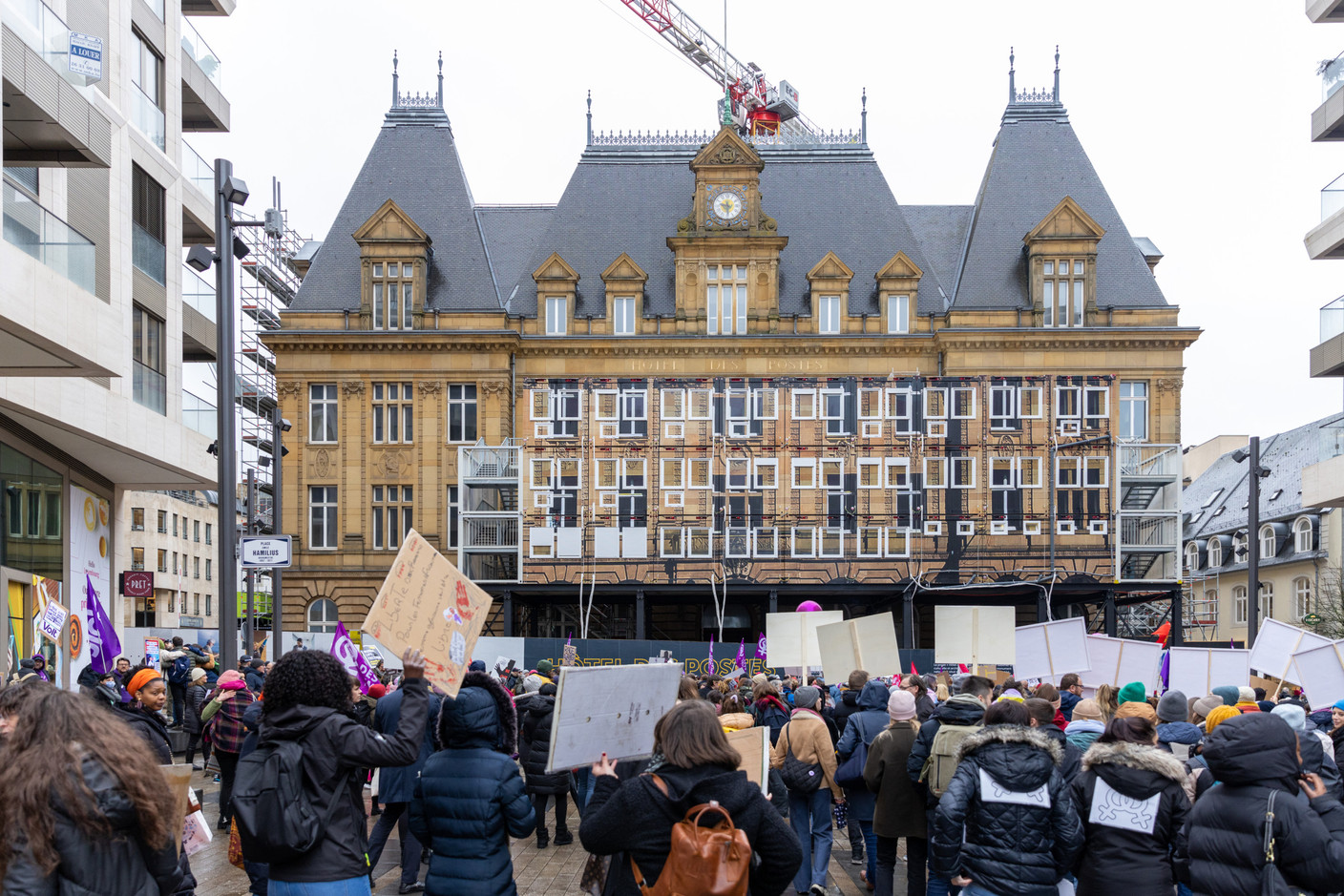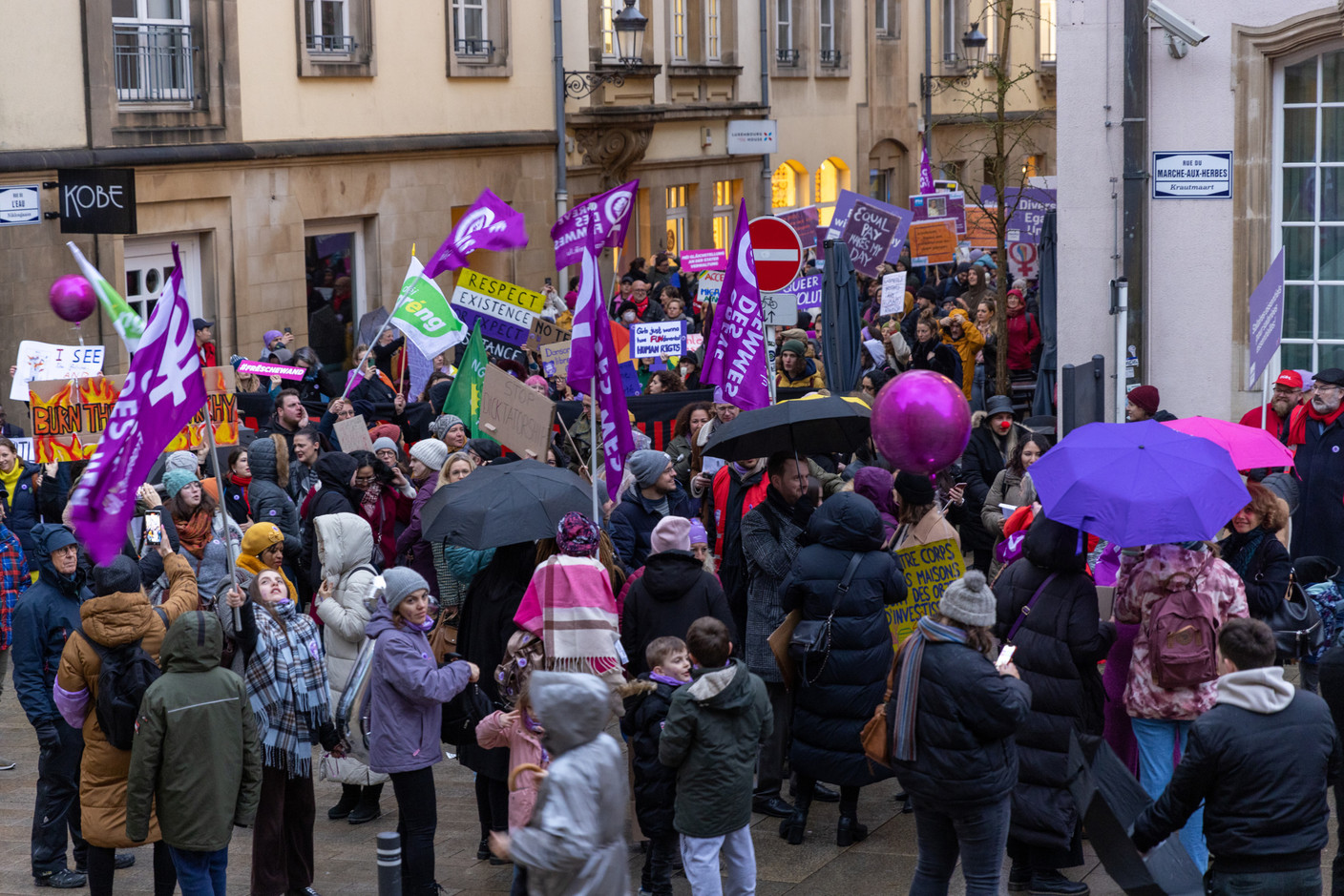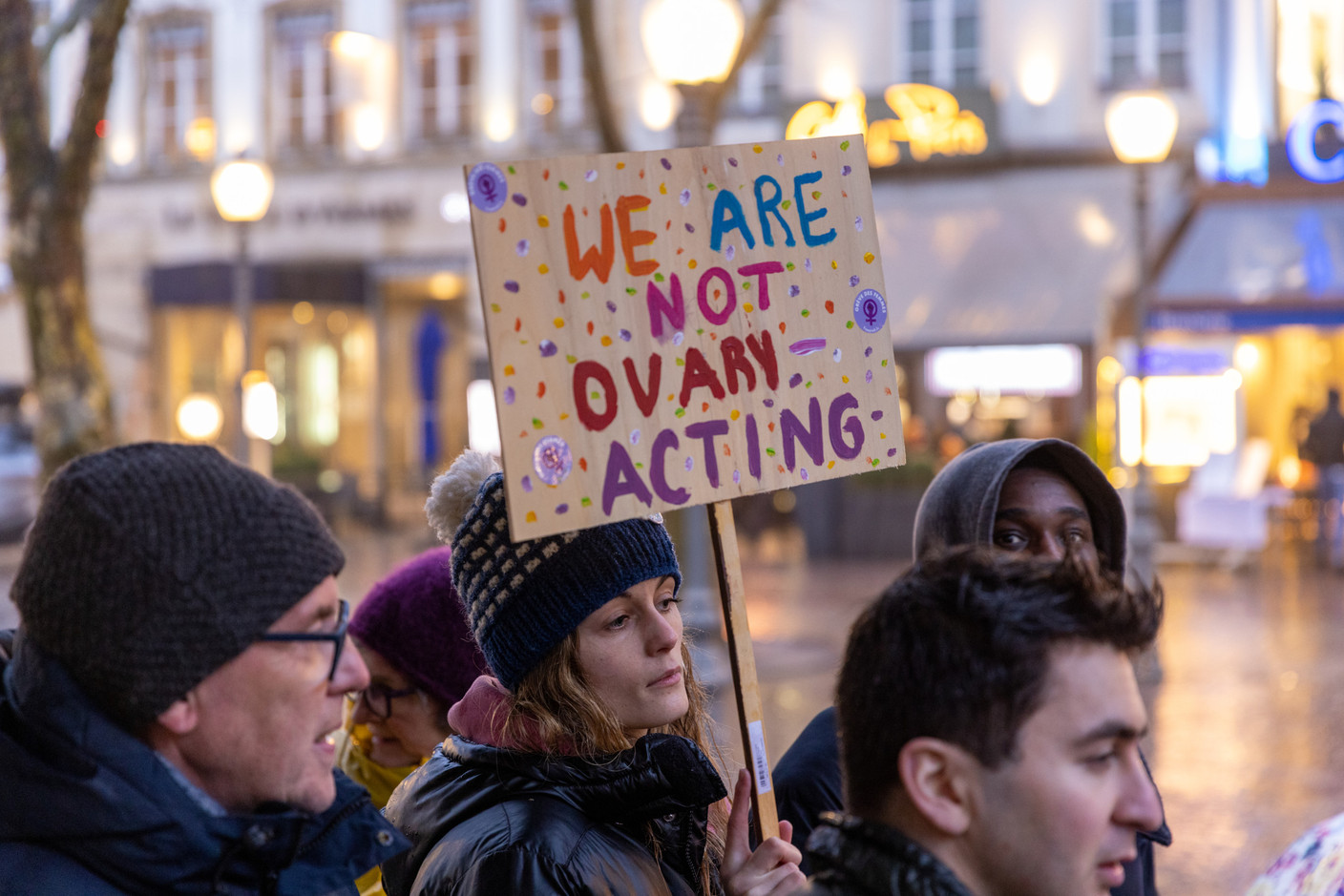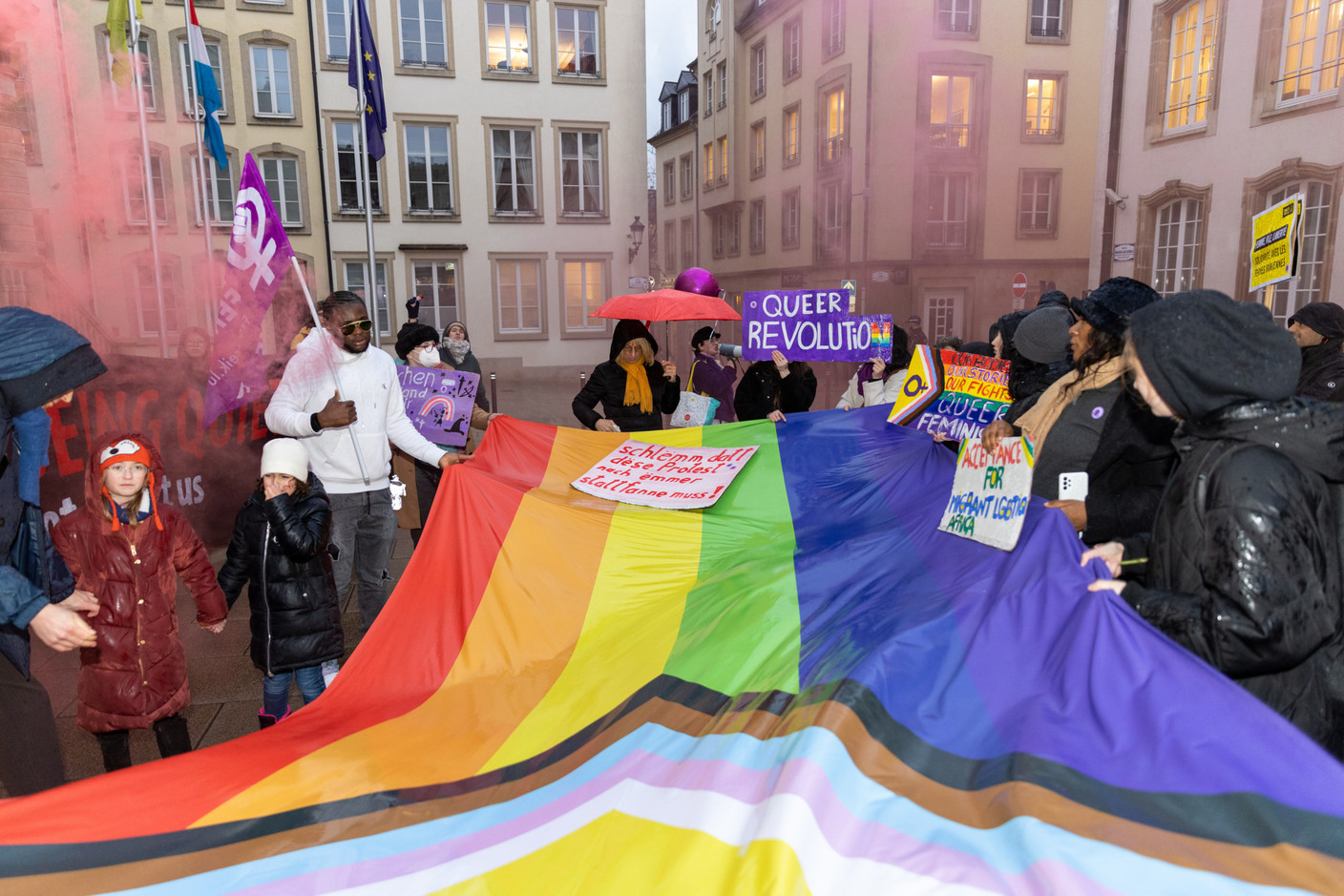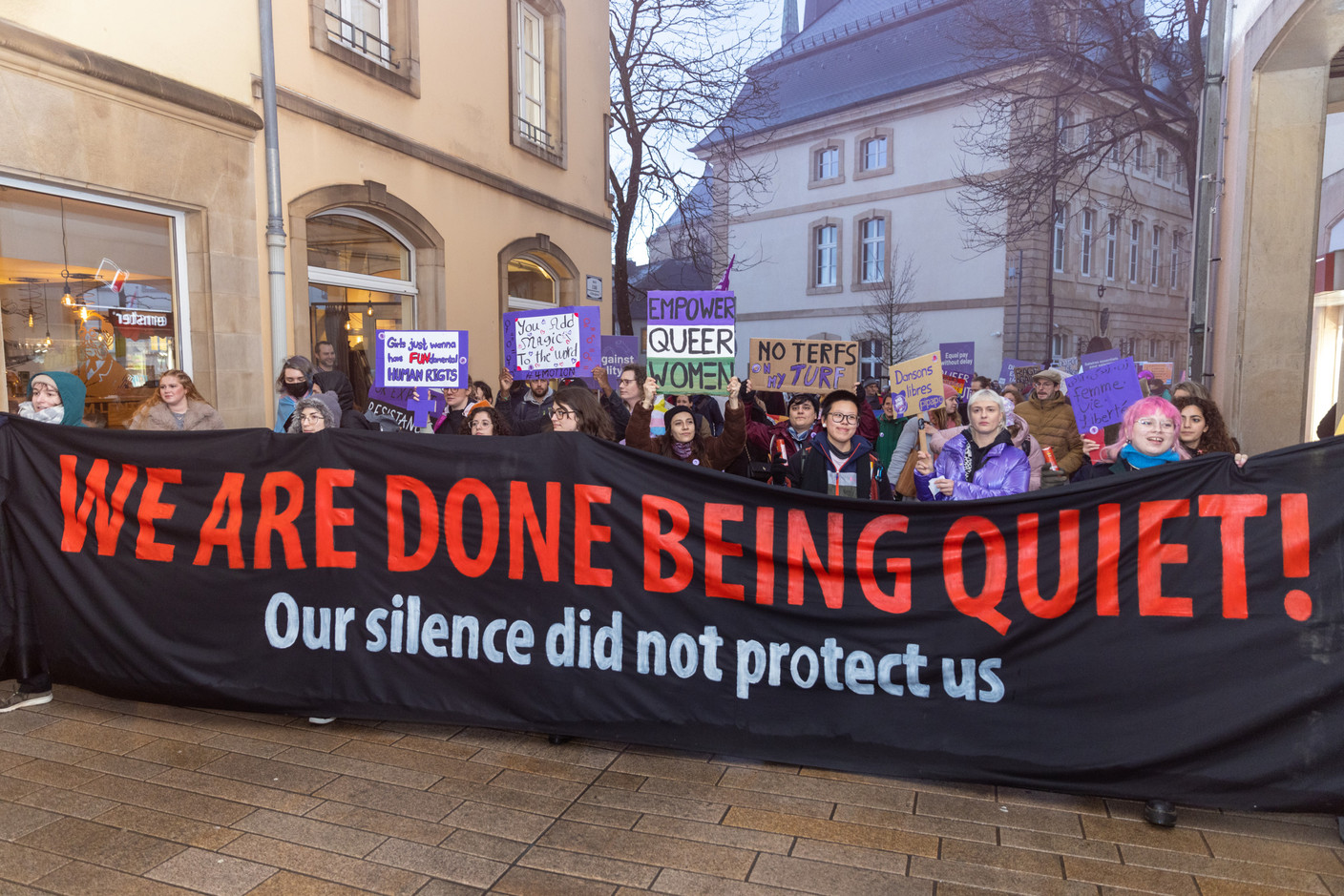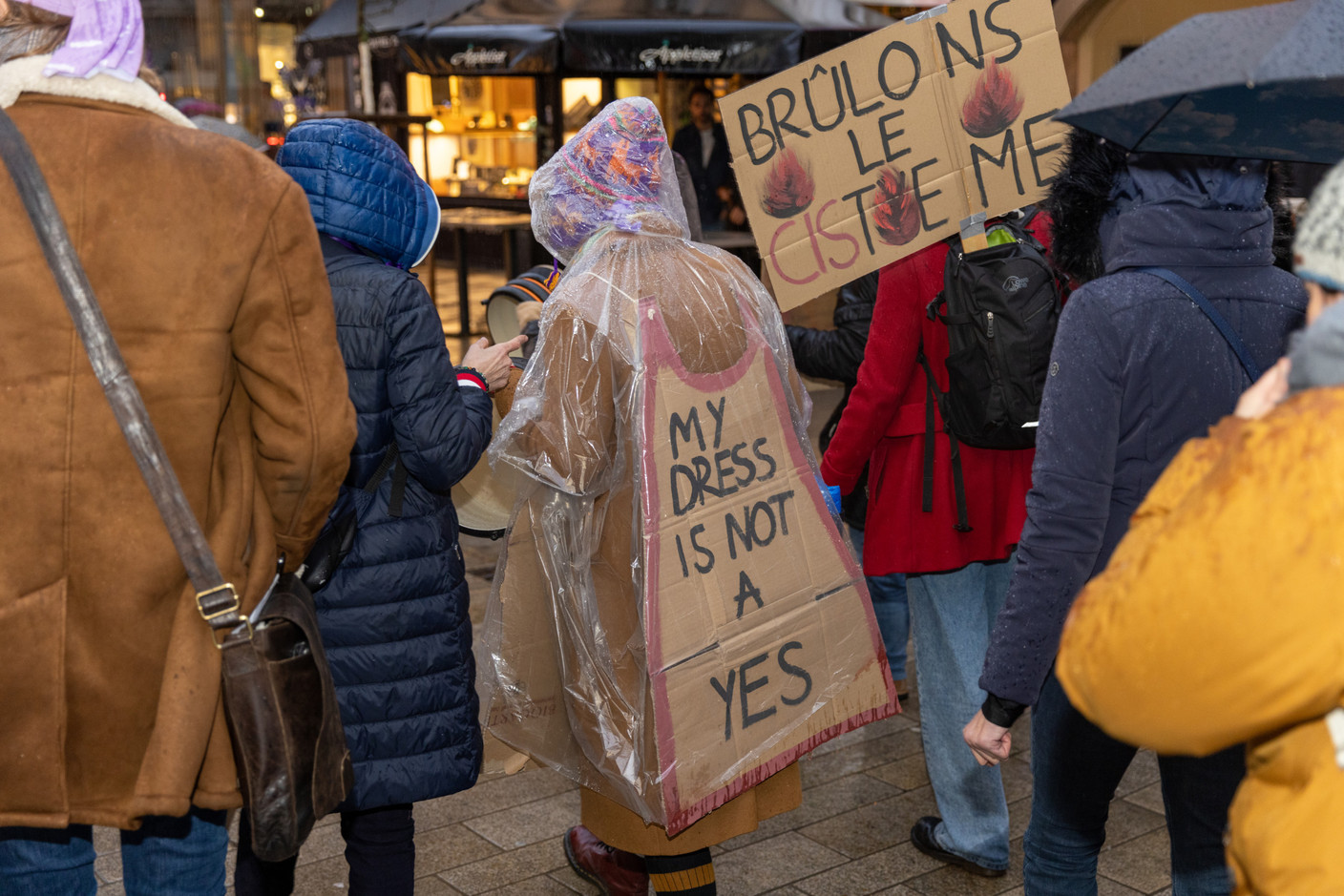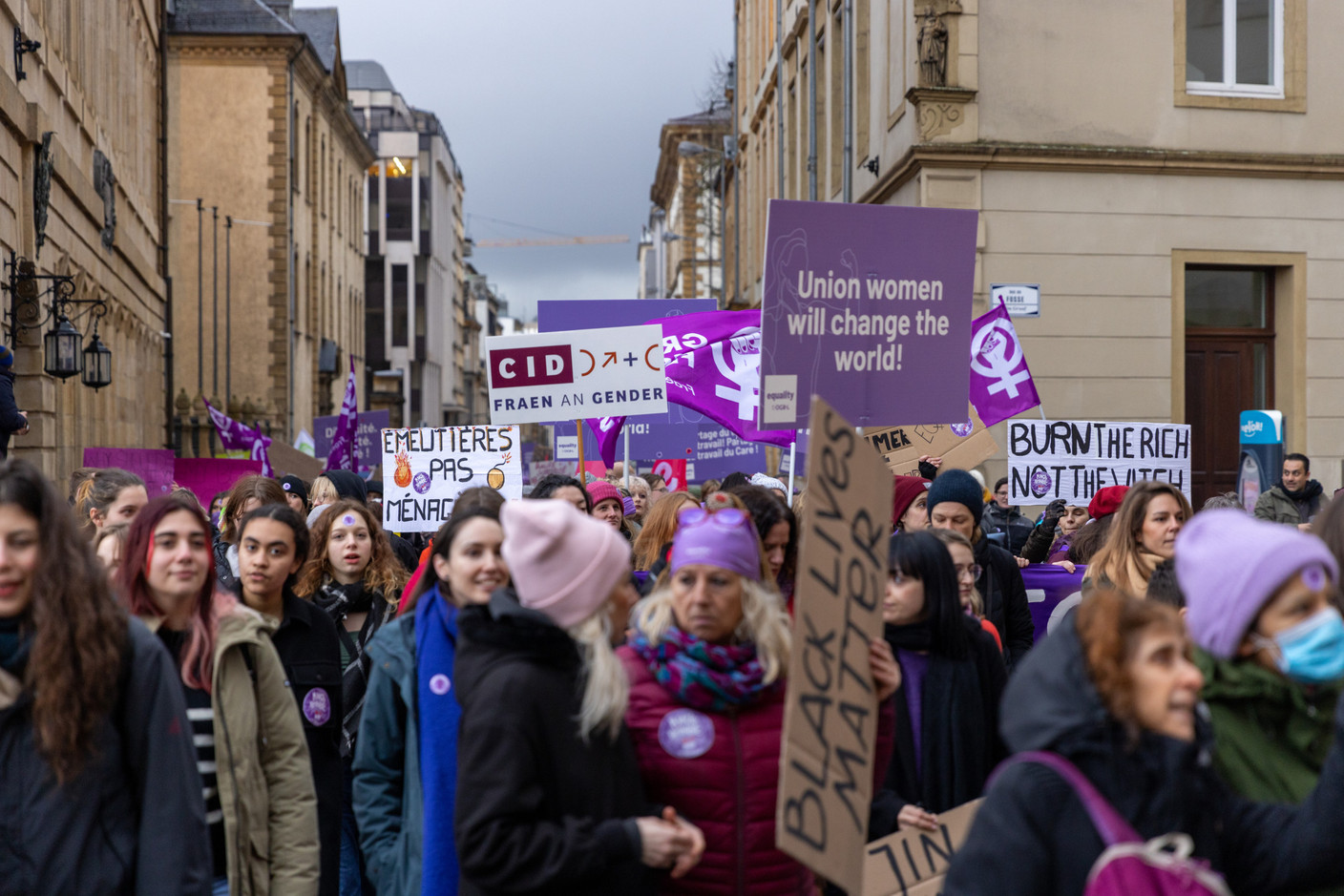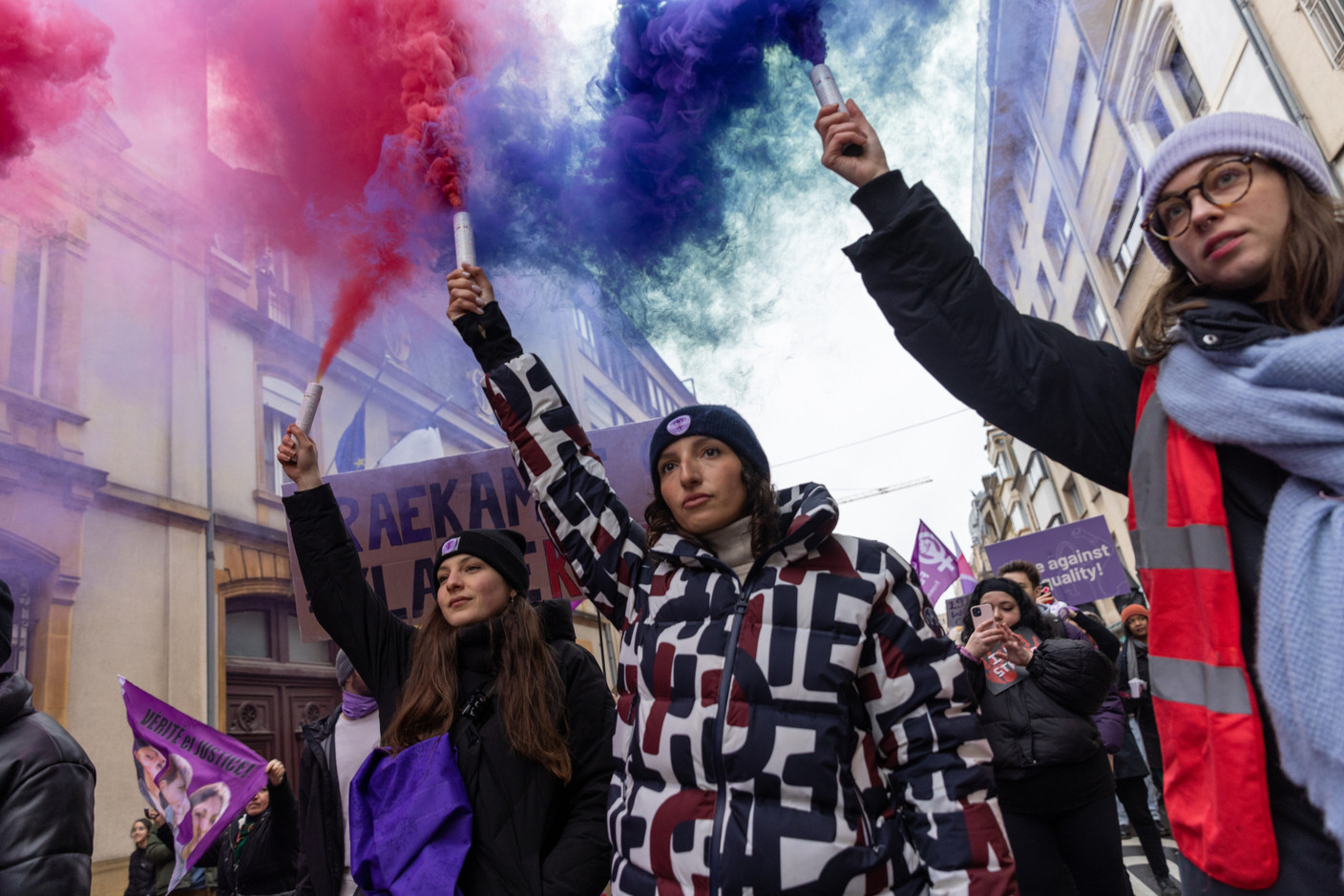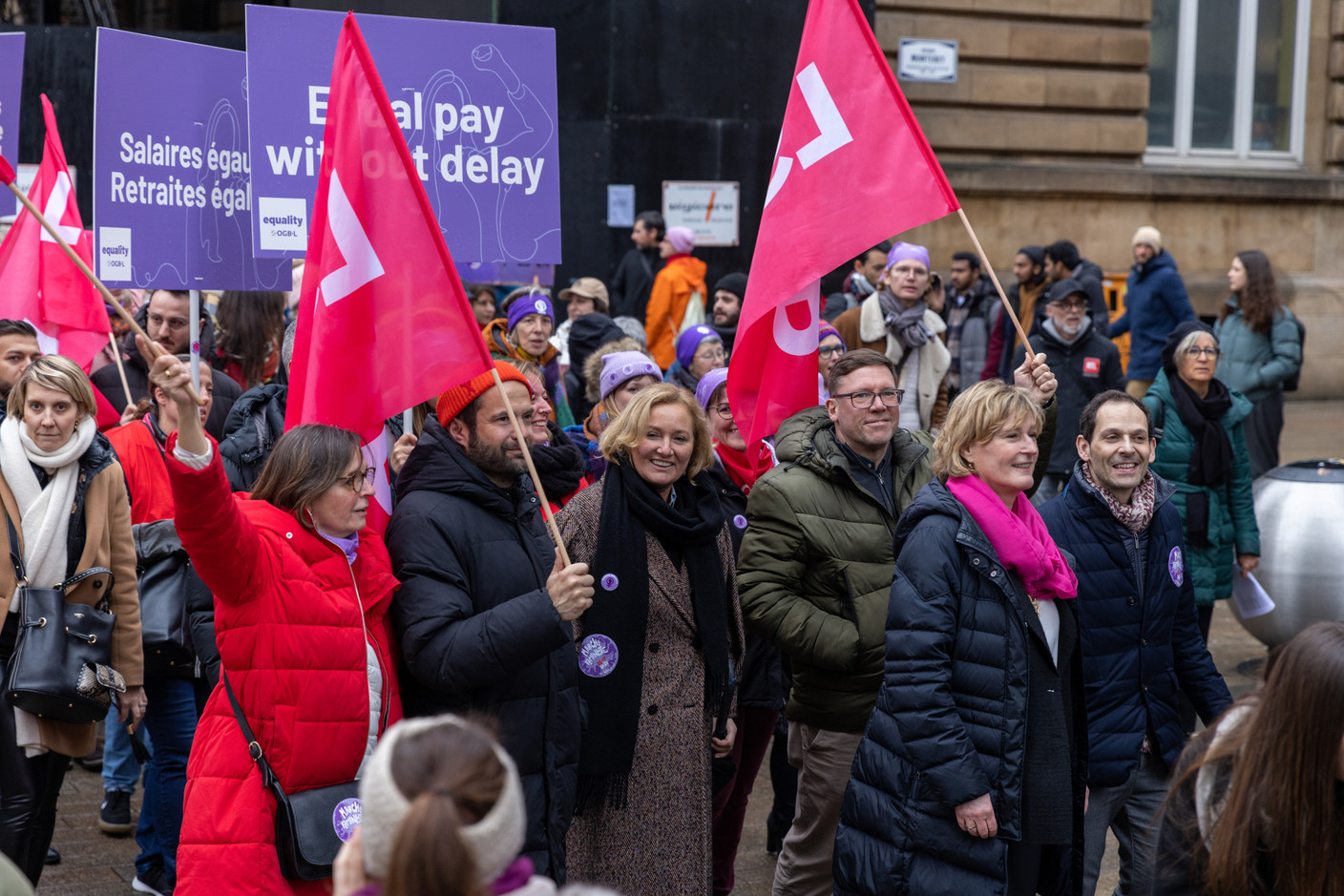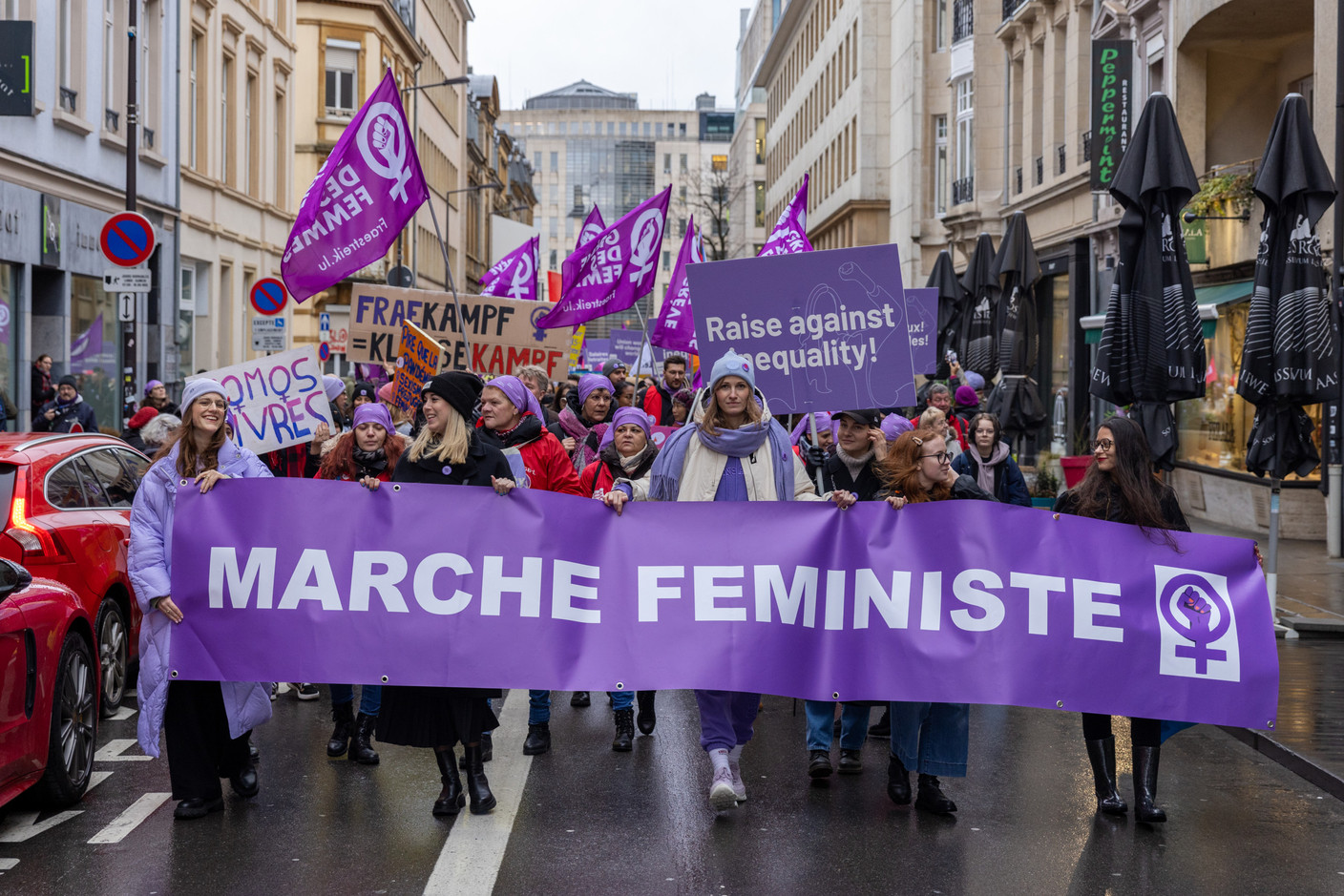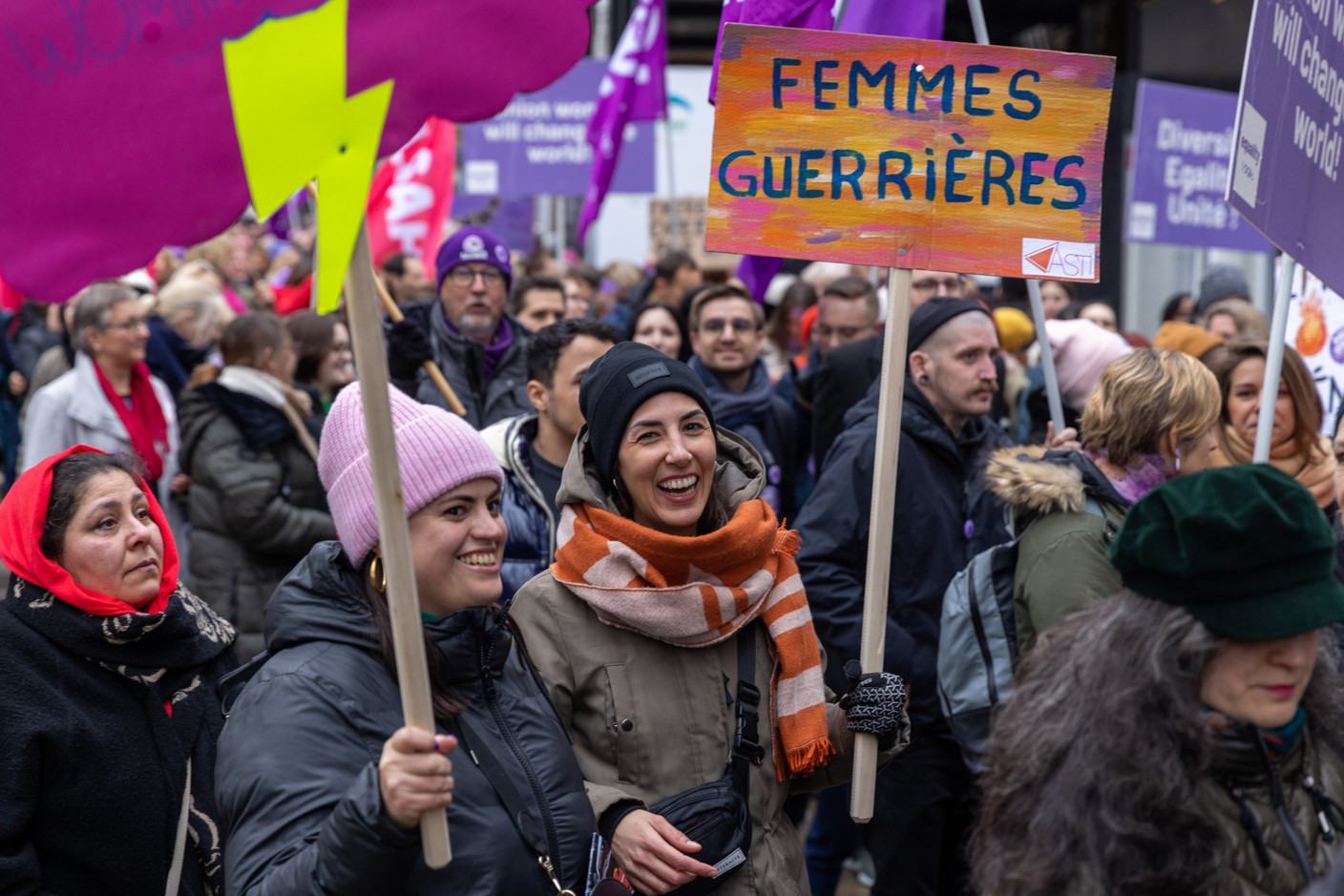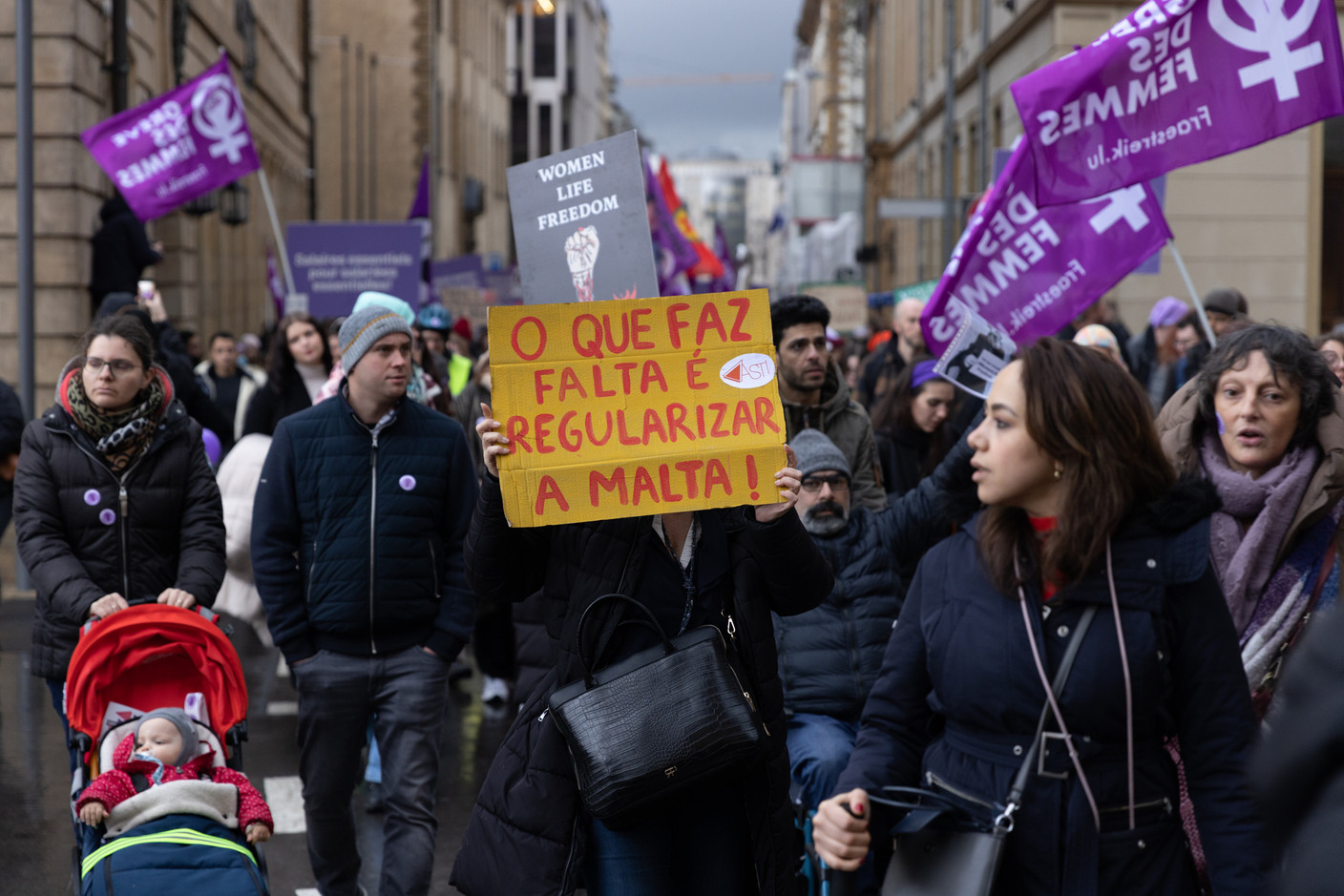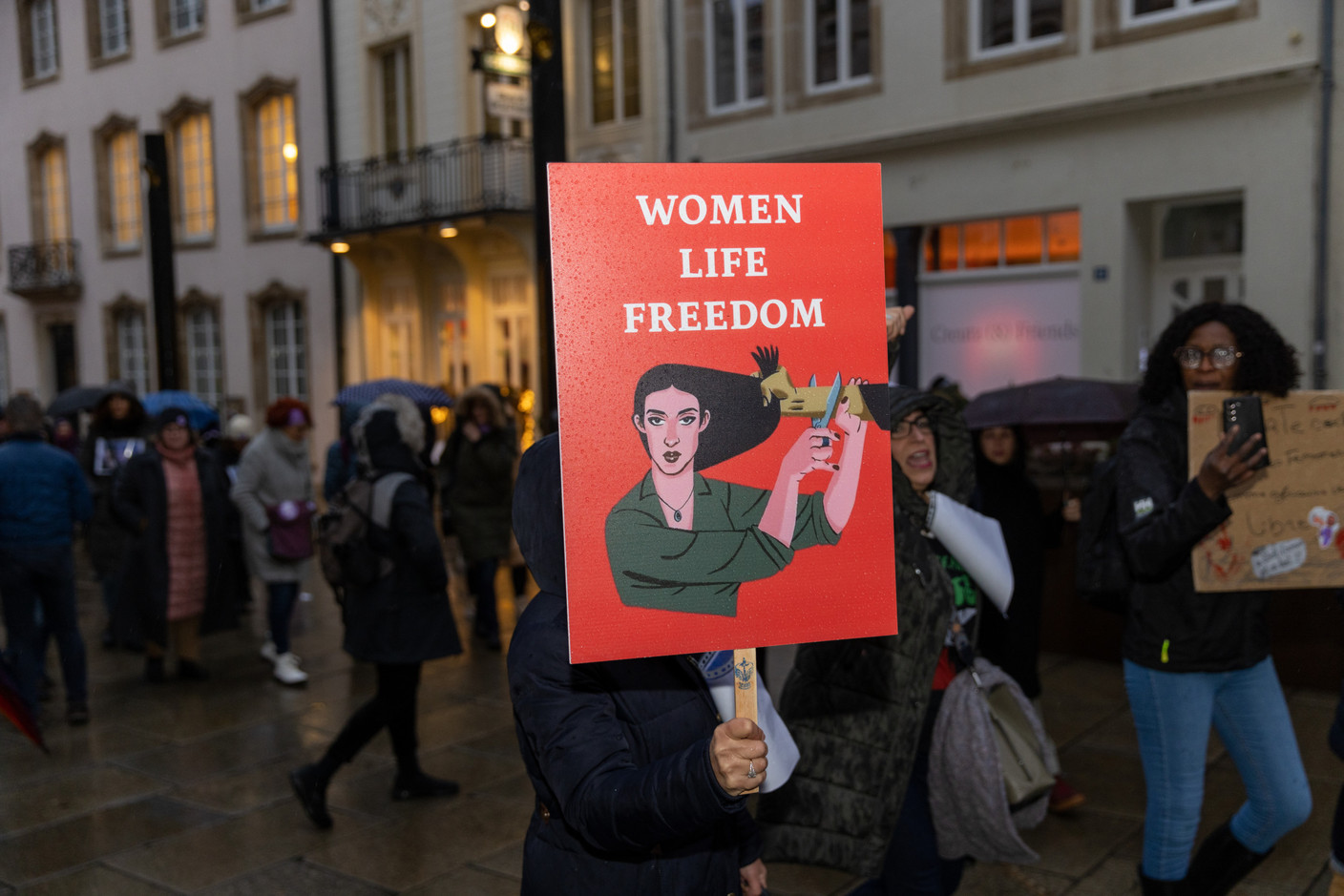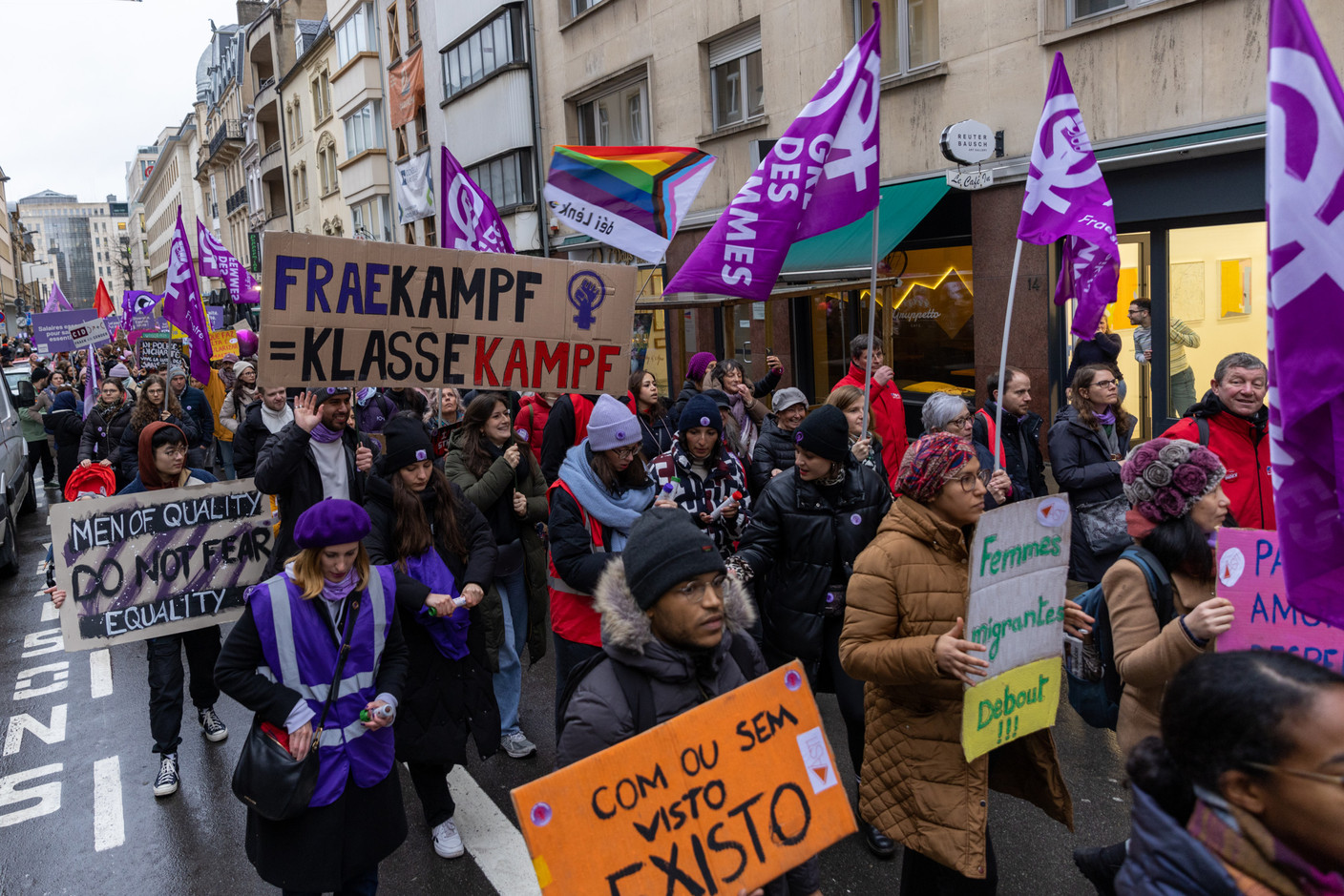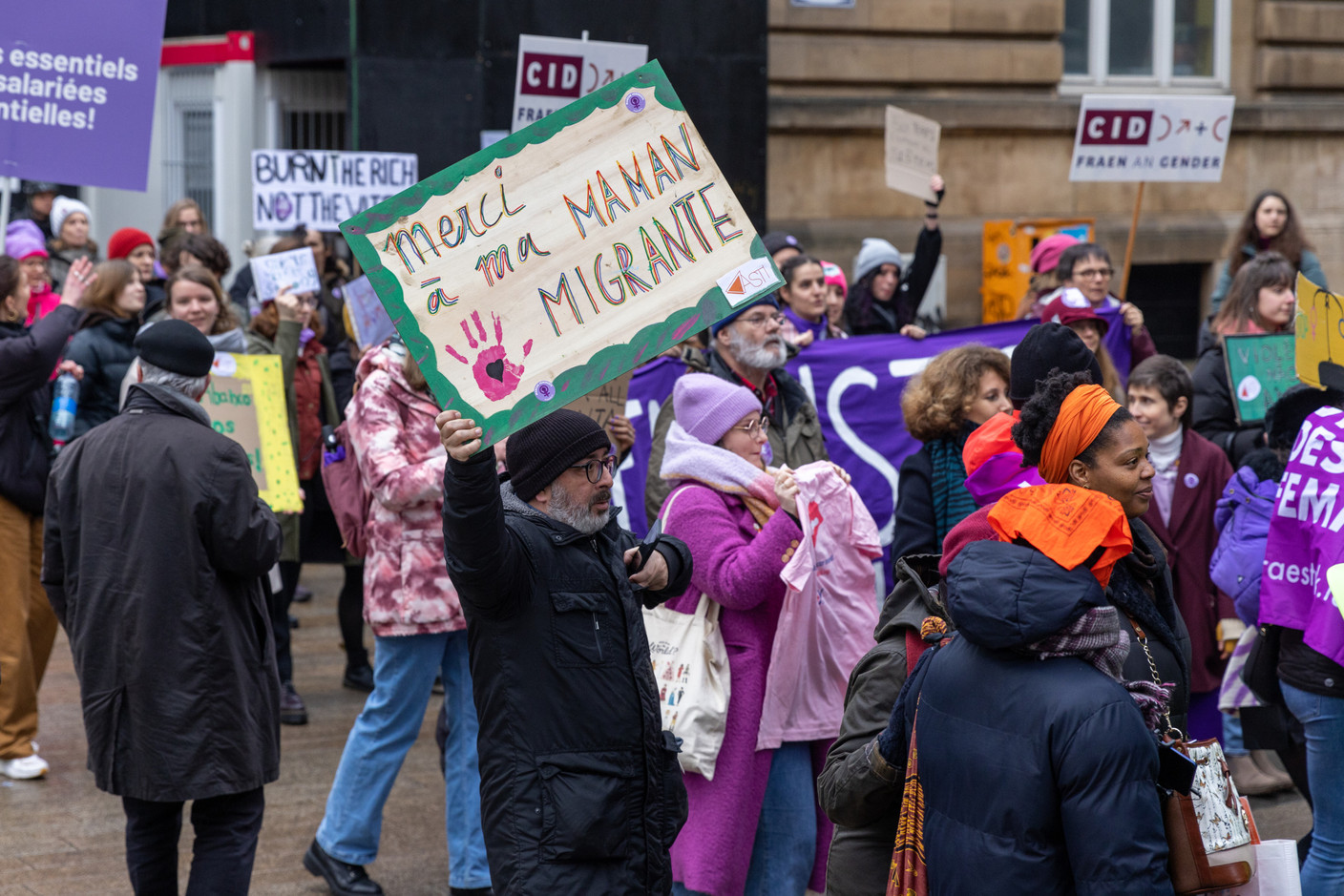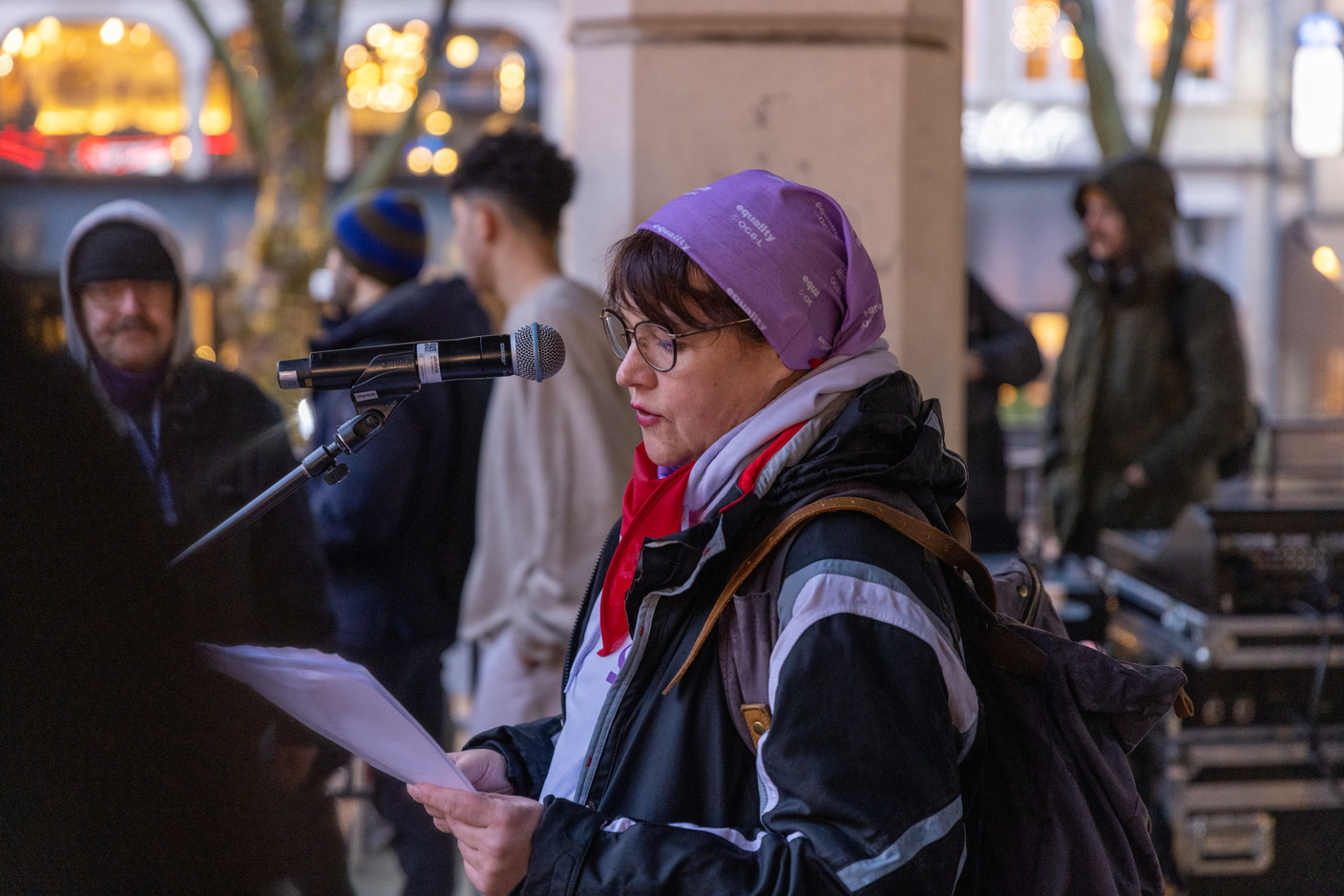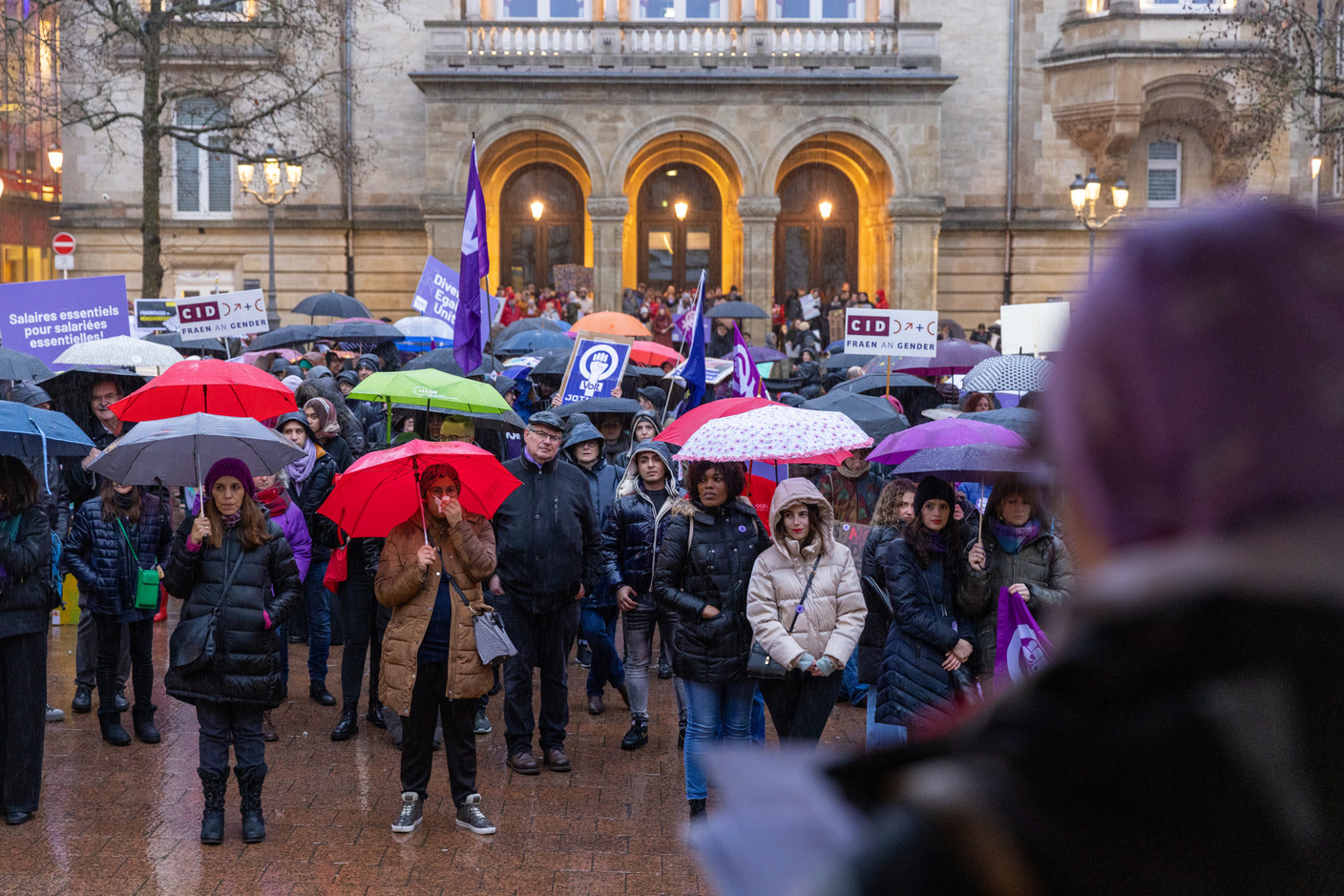The International Women’s Day (JIF) platform hosted its annual women’s march on Wednesday, bringing together NGOs, activist groups, political parties, labour unions and anyone wanting to take a stand for equality.
“It’s an important topic. I’m really happy that there are so many people here today,” said a mother attending the march with her daughter, “to show her that it’s important to fight for the rights of women. We are really privileged here. There are so many parts of the world where it’s not like this.”
Signs held aloft read “Woman, Life, Freedom”, a slogan spread during the Iran protests that began in September last year after the death of 22-year-old Mahsa Amini who had been detained by the morality police.
“We stand in solidarity with our sisters in Iran, with our sisters in all war zones” said Ana Correia Da Veiga, one of the protest’s organisers during remarks delivered on Place d’Armes at the end of the march. “We need a wave of rage for the women who suffer,” she said.
“Make some noise”
Protesters gathered around 5pm at the Hamilius square in the city centre. While last year’s march started at the central train station and went up Avenue de la Liberté, this year’s edition took the protest straight to the heart of the capital, walking along Rue Notre Dame, past parliament and down Grand-Rue.
“I like walking through the streets with so many people and being loud and having so much strength in numbers,” said Ada. “Luxembourg is a county that needs a lot more vocal people,” said the activist who attended together with the Richtung22 art and activist collective.
The group carried a banner: “We are done being quiet.” Its campaign around International Women’s Day focuses on the Luxembourg music scene and the role of women, trans and non-binary persons. “We wanted to come here, like every year, to take up space, make some noise, and remind people that we’re not done,” said Ada.
“I love the energy today,” said Sarah who attended the march with two friends. “We are feminists. We are willing to fight for our rights and that things change in the future,” said Lisa, standing next to her. “A lot of people say that there are no problems here. That’s not true.” Together with their friend Nadina they agreed that “systemic change needs to happen.”
Policy demands
Staff delegations within companies should be part of that change, said Delphine Nicolay, secretary general of financial sector Aleba. “Each delegation needs to show their employees that they are taking care of equality.” But it wasn’t all about the union for Nicolay. “I’m a woman and I have to show up. It’s my place,” she said about attending the march.
The JIF platform ahead of the protest had published a list of demands to policymakers, including wage justice, reduced working hours, three months birth leave for both parents, a right to housing and more efforts against violence against women, including the recognition of femicide as an offence in the penal code.
The group repeated these demands on Place d’Armes, also singing feminist songs and chanting slogans. As rain started pelting down, however, the protest thinned out considerably, finally ending with an afterparty at the Gudde Wëllen.
